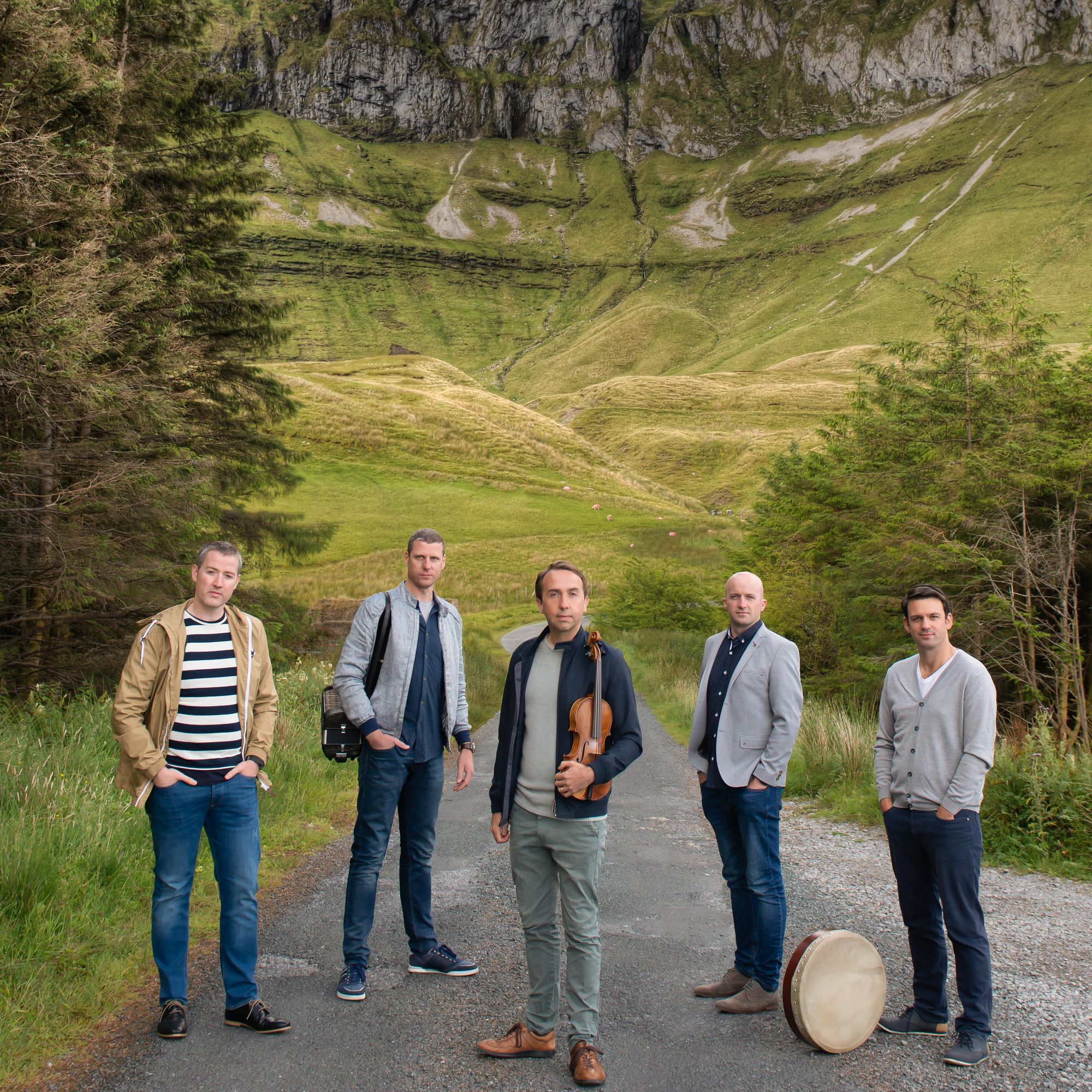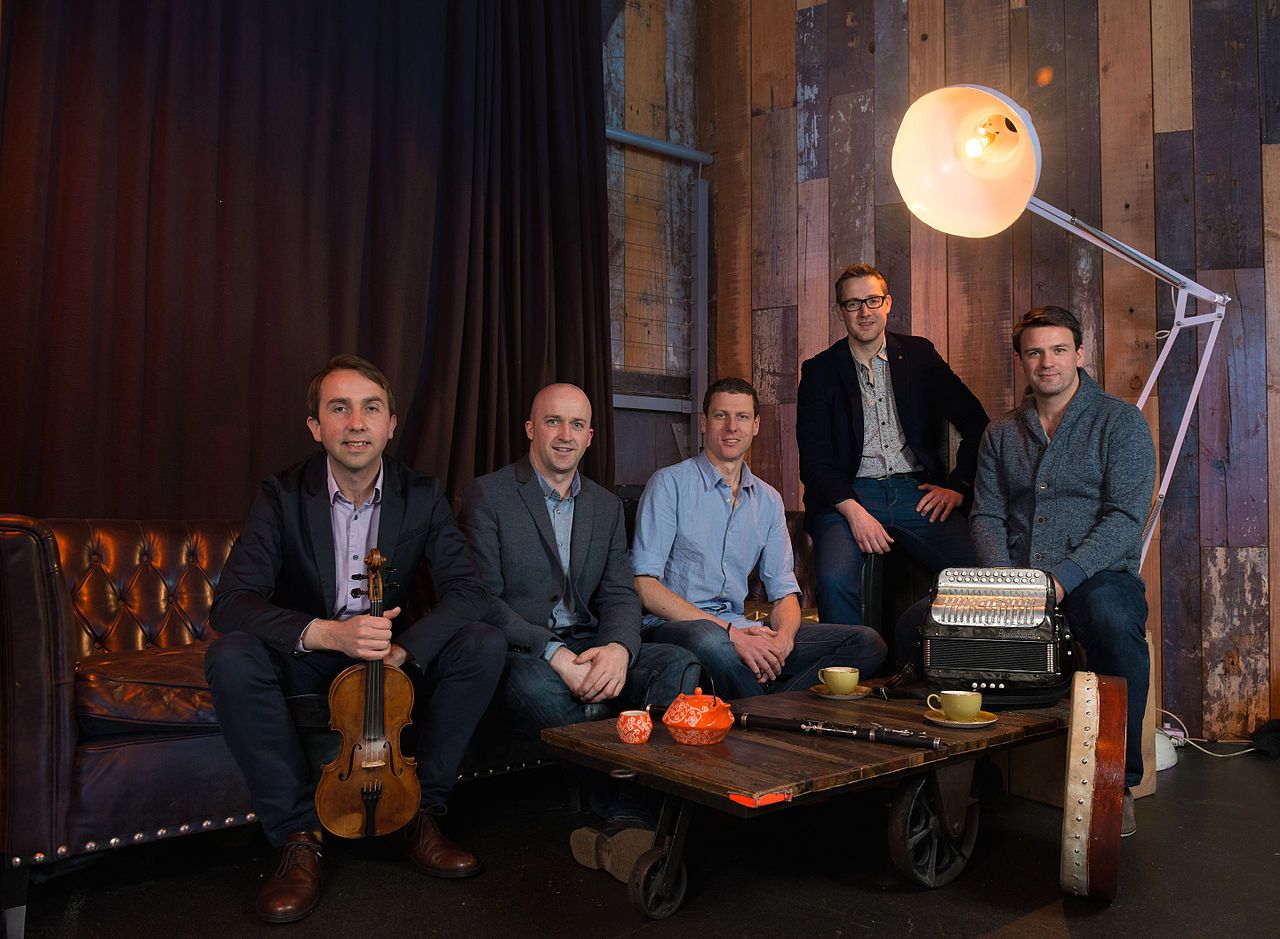SINCE 2001, the band Teada has been one of the foremost, and most creative, advocates for traditional Irish music. They’ve garnered a large and admiring fan base in the U.S., largely on the basis of their energetic touring and their adventurous yet respectful deep-dive into the traditional repertoire.
The band's emphasis on the simple folkways of traditional music is in their very name, which simply means “strings” in Irish. Their most recent album, Coisceim Coiligh, came out this time last year and features a unique collaboration with the Irish-American actor John C. Reilly (Chicago, The Aviator, Walk Hard).
Teada plays an interesting run of shows at the Savannah Music Festival, all within the intimate space of the Metal Building at Trustees Garden. They play two double bills Friday evening with the Irish quartet The Alt, and a show all on their own Saturday afternoon.
We spoke with Teada’s famed fiddler and co-founder Oisin (“osh-een”) Mac Diarmada, a few days after St. Patrick’s Day, while the band was in the middle of a busy coast-to-coast U.S. tour.
Like most Irish musicians, I’m sure your performance calendar every year revolves around St. Patrick’s Day in some form or fashion. What’s this year’s busy season been like for Teada?
Yes, it’s usually the case that an Irish musician hardly ever spends St. Patrick’s Day at home! This year our St. Patrick’s “month” tour of the U.S. is from late February through March this year. It’s a five-week tour actually more or less culminating with the Savannah Music Festival.
Overall, it’s become more feasible for many Irish musicians to tour abroad, and one of our great delights is meeting other Irish people in America. In Ireland traditional music can be heard anywhere from the most informal pub session to great venues. It’s a small country with so many great musicians. Taking it abroad is great for Irish music and great for Ireland.
The big news from your band is that the actor John C. Reilly joined Teada on your most recent album for a tune, singing 'Eileen Og' along with Seamus Begley. Tell me how that collaboration came about.
It was a lovely opportunity, and quite serendipitous. Seamus, who sadly just passed away earlier this year, came from West Kerry, and was very old school. The rest of us in the band were from a younger generation. Seamus had that wonderful sense of fun. He was a character from an older way of life in Ireland, when things were more social, and people always made time to stop and converse with other people.
The two met serendipitously in 2019 while John C. was in Ireland promoting a film. The two of them just hit it off straight away, and Seamus brought John C. down to his house, in Kerry, in that magical part of the world.
Later that year back in America, John C. joined us onstage in Hollywood on the last night of our tour and sang with us. We happened to be doing an album about the same time and we talked about him actually joining us on that. He has such a passion for Ireland and for Irish music, and we were thrilled. It was nothing that we could have planned.
The pandemic put a big delay on finishing the album, though we had most of it done. Due to the way the regulations were at the time, it was much easier for me to come back into the U.S. in 2021 to finish up John C.’s portion than for us to get him back into Ireland. So I came back to America, found a studio in Hollywood, and we went in and did his tracks for that song.
How badly did the pandemic lockdowns affect the traditional music scene in Ireland?
I’m happy to say that the scene bounced back really quickly. The Irish people overall were pretty patient with all the pandemic rules. But the pandemic hit deepest on a social level.
This music completely depends on a social context. Irish music has always evolved and thrived in places where people are meeting other people. Whether you live in a rural place, or you live alone, the places where you mingle and marry are very important to community life. So I’m delighted with how quickly the music has been reinvigorated.
I keep reading horror stories about how many old pubs in Ireland as well as in the UK are shutting down permanently. Is that a real concern?
That’s very real, but to be honest that started happening long before the pandemic. The thing to remember is that traditional Irish music existed long before there were pubs. The demise of pubs and pub culture is very sad, but it also reflects a myriad of societal changes. The music will survive regardless, of that I am sure.
Post-Brexit, has it been difficult to take traditional Irish music from the Republic into Northern Ireland and vice versa?
Both governments have been very committed to a frictionless border, so I’m happy to say that there have been no real problems with that.
Is there a significant difference in the fiddling styles of Ireland or Scotland, or is that a bit overblown?
Well, there’s lots of commonality, but I have a much greater familiarity with Irish fiddling, and not the same level of awareness of Scottish fiddling. I’m more familiar with the differences in fiddling styles within Ireland itself.
I'd say that County Donegal seems to be the place in Ireland that has the most clear and obvious musical relationship with Scotland. They tend to be more vigorous bowers (laughs). The styles in County Sligo and County Clare are more subtle, with smaller movements. That style is definitely not what you'd call exhibitionist. But overall I’d say the Scottish style features a stronger rhythm. They’re more likely to stand up and play.
What can audiences expect from Teada's show at the Savannah Music Festival?
We’re doing three shows altogether, and the shows with The Alt are a bit more focused on the vocals. It’ll be a lot of lively, energetic music. We’re not going to be sitting around with dour faces. There will be lots of smiling and laughing. We’ll be playing music that’s 100 years old and some new music as well. Because Irish music is a vibrant, living tradition.
Teada plays with The Alt at 5 and 8:30 p.m. this Friday night at the Metal Building in Trustees' Garden. They play at 12:30 the following Saturday afternoon at the same venue. For tickets go here.


